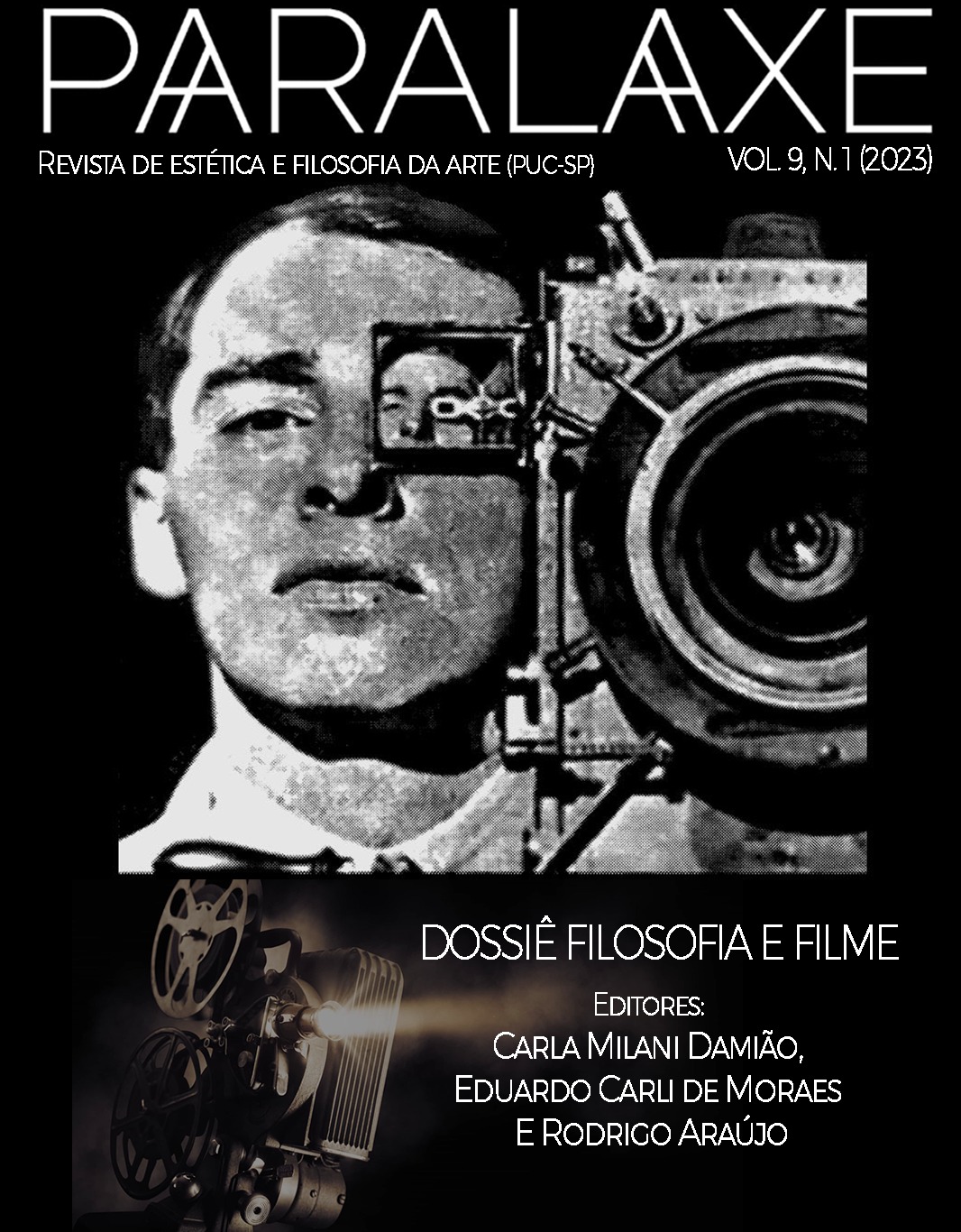Português
DOI:
https://doi.org/10.23925/2318-9215.2023v9n1D19Keywords:
Ontologia do cinema, romantismo, automatismo, fotografia, ceticismoAbstract
This paper discusses a fragment of the Cavellian ontology of film brought forth in The world viewed. The first section attempts to unravel the meaning of the recurrent image of the moon in Cavell's works, both in his epistemological writings and those about cinema, works that are, to a certain extent, inseparable. Lead by that, the second section focuses on the importance of photographic automatism and André Bazin's influence on Cavell's ontological theory. Finally, the ideas previously raised are concluded with a brief reading of A trip to the moon, the Georges Méliès’ most notorious film.
References
ACONTECEU naquela noite [It Happened One Night], Direção de Frank Capra, EUA: Columbia, 1934. (105min).
BAZIN, André. O que é o cinema?. Tradução por Eloisa Araújo Ribeiro. São Paulo: Ubu Editora, 2018
CAVELL, Stanley. Little did I know: Excerpts from memory. Standford: Standford University Press, 2010
CAVELL, Stanley. Contesting tears: The Hollywood melodrama of the unknown woman. Chicago: The Chicago University Press, 1996
CAVELL, Stanley. Pursuits of happiness: The Hollywood comedy of remarriage. Cambridge: Harvard University Press, 1981
CAVELL, Stanley. The claim of reason: Wittgenstein, skepticism, morality, and tragedy. New York: Oxford University Press, 1979a
CAVELL, Stanley. The world viewed: Reflections on the ontology of film. Cambridge: Harvard University Press, 1979b
CREEPY [Kurîpî: Itsuwari no rinjin], Direção de Kiyoshi Kurosawa, Japão: Shochiku, 2016. (130min).
DE VOLTA para o futuro [Back To The Future], Direção de Robert Zemeckis, EUA: Universal, 1985. (116min).
ESTRANHA passageira, A [Now, Voyager], Direção de Irving Rapper, EUA: Warner Bros., 1942. (117min).
EZRA, Elizabeth. Georges Méliès: The birth of the auteur. Manchester: Manchester University Press, 2000
GABINETE do Dr. Caligari, O [Das Cabinet des Dr. Caligari], Direção de Robert Wiene, Alemanha: Decla-Film, 1920. (74min).
HALLOWEEN – A noite do terror [Halloween], Direção de John Carpenter, EUA: Compass International, 1978. (91min).
HOMEM invisível, O [The Invisible Man], Direção de James Whale, EUA: Universal Pictures Corp., 1933. (70min).
HORA do pesadelo, A [A Nightmare on Elm Street], Direção de Wes Craven, EUA: New Line Cinema, 1984. (91min).
INQUILINO, O [Le locataire], Direção de Roman Polanski, França: Paramount, 1976. (126min).
KEANE, Marian & ROTHMAN, William. Reading Cavell’s The world viewed: A philosophical perspective on film. Detroit: Wayne State University Press, 2000
MASSACRE da serra elétrica, O [The Texas Chain Saw Massacre], Direção de Tobe Hooper, EUA: Bryanston, 1974. (83min).
MÁGICO de Oz, O [The Wizard of Oz], Direção de Victor Fleming, EUA: Loew's Inc, 1939. (101min).
NOSFERATU [Nosferatu – Eine Symphonie des Grauens], Direção de F. W. Murnau, Alemanha: Film Arts Guild, 1922. (94min).
PAIXÃO de Joana d’Arc, A [La Passion de Jeanne d'Arc], Direção de Carl Theodor Dreyer, França: Société Générale des Films, 1928. (82min).
QUERO ser John Malkovich [Being John Malkovich], Direção de Spike Jonze, EUA: USA Films, 1999. (113min).
SANGUE de um poeta, O [Le sang d'un poète], Direção de Jean Cocteau, França : Tamasa Distribution, 1932. (55min).
STEVENS, Kyle. The world heard, in: LaROCCA, David (ed.). The thought of Stanley Cavell and cinema: Turning anew to the ontology of film a half-century after The world viewed. New York: Bloomsbury Academic, 2020, p. 63-87
TECHIO, Jônadas. The threat of solipsism: Wittgenstein and Cavell on meaning, skepticism, and finitude. Boston: De Gruyter, 2021
TECHIO, Jônadas. The threat of privacy in Wittgenstein's Investigations: Kripke vs. Cavell. Wittgenstein-Studien, vol. 11, n. 1, p. 79-104, 2020
VIAGEM à lua [Le Voyage dans la Lune], Direção de Georges Méliès, França: Star Film, 1902. (16min).
Downloads
Published
How to Cite
Issue
Section
License
Cedo à revista Paralaxe os direitos autorais de publicação de meu artigo e consultarei o editor científico da revista caso queira republicá-lo depois em livro.


